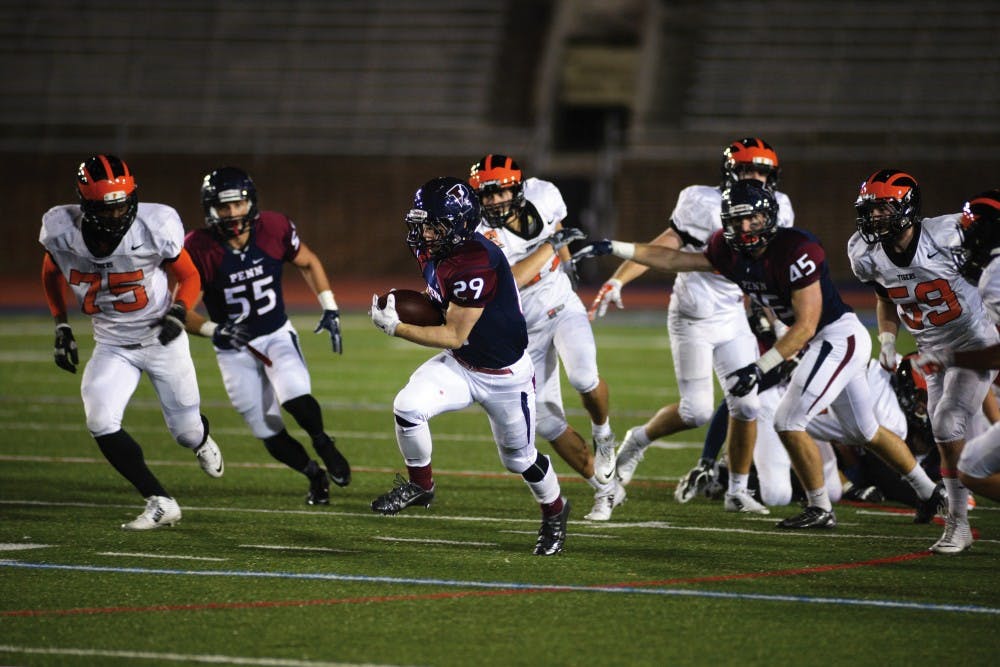
After going more than 15 years without a win, Princeton ended its sprint football program following the 2015 season.
“Safety School! Safety School! Safety School!”
The year is 2007. I am a brazen and beautifully snarky middle school student sitting with a group of 10 friends at Jadwin Gym for a Princeton-Penn men’s basketball game. We are positioned strategically behind the Penn Band so they can hear our chants but are just far enough away to be sure retaliation won’t be an option (a hilarious consideration now that I’ve seen the Penn Band up close). We had grown up in Princeton, going to Princeton games and being involved with the university in various capacities.
I grew up in Princeton University housing. My father worked as a football coach for Princeton for 13 years. Some of the greatest relationships of my life — friends, role models, mentors — would have never happened if it weren’t for my intimate relationship with Princeton University and the town of Princeton.
Today, as I write this article as a junior at Penn, the irony of my relationship with Penn as a result of that is not lost on me. Now, on the other side of one of the oldest rivalries in college sports, I have experienced it as a participant and an observer.
Princeton sprint football was infamous, nationally and within the sprint football community, for never winning. Before discontinuing their program, the Princeton sprint football team had not won a game since “Heartbreaker” by Mariah Carey topped the Billboard Top 100, the original Tony Hawk: Pro Skater was released for PlayStation and the world was busy preparing for Y2K — all things I had to Google because I was only four years old when it happened. That was in 1999. 106 games later, after blowouts, heartbreaks and everything in between, Princeton discontinued their sprint football team in August of this year.
Following the cut of the program there were hot takes galore from around the sports and sprint football world: from “it’s about time” to “I can’t believe we lost a game on the schedule” to “ugh, now I can’t pad my stats at the end of the season.” But as a sprint football player, you can’t help but have a tremendous amount of respect for the players and the people that contributed to that program throughout the years.
No one plays sprint for the glory, or for the fans, or for the girls. You play because you love football and you love your teammates. It is the game in its purest form: it is empty stadiums where you still get jitters. It is late night practices and early morning lifts where passersby say, “who are those guys?” Princeton sprint football, to go through all of that, with a 20-something man roster, towards near-certain defeat, is worthy of the respect of anyone that’s ever played a sport they loved.
As a sprint football player myself, the discontinuation of the sprint program at Princeton was a startling reminder that my ability to play the game I love, the game that has taught me so much, is just a few phone calls away from being taken away from myself and my teammates. It gives new life to the phrase “play every play like it’s your last,” because not only can it all be gone in a second, but almost no one would notice.
The Daily Pennsylvanian is an independent, student-run newspaper. Please consider making a donation to support the coverage that shapes the University. Your generosity ensures a future of strong journalism at Penn.
DonatePlease note All comments are eligible for publication in The Daily Pennsylvanian.








